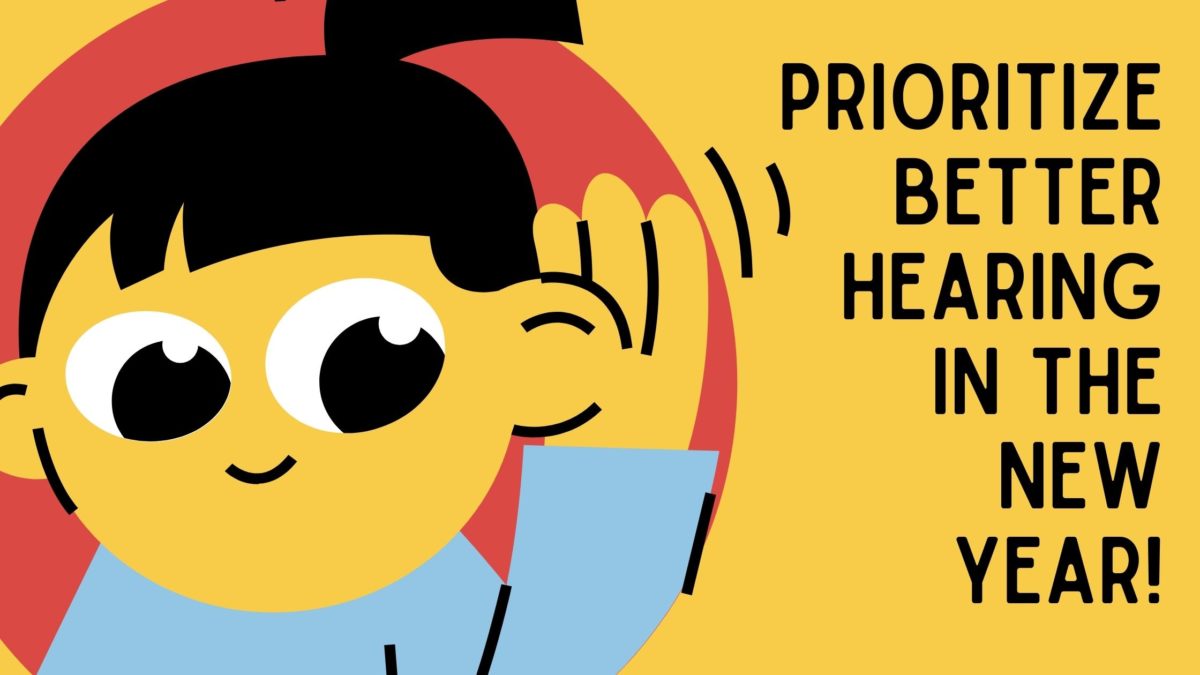Do your new year’s resolutions include improving your health and wellbeing? Do you plan to get more exercise or eat less sugar? If you want to give yourself a head start with one simple step, prioritize better hearing in the new year. Treating hearing loss can have a huge impact on your overall physical, mental, and emotional health.
Better Hearing Improves Relationships
Better hearing has a major impact on your relationships. When you get back to better hearing, you won’t have to strain to hear what’s being said. You can participate in conversations and easily hear every word. You’ll even be able to follow conversations in places with a lot of background noise!
Better hearing can help you invest in the people that matter the most. Instead of getting frustrated when you just can’t understand what’s being said, you can enjoy spending quality time with loved ones. Hearing aids improve speech clarity and decrease listening fatigue so you can improve your relationships.
Better Hearing Improves Your Overall Health
You go to the doctor for a checkup every year, you get your teeth cleaned every six months, and you get a vision exam every year or two. This year, make sure you add a hearing test to your health goals! Treating hearing loss can improve your overall health. When you can hear clearly, you won’t feel so tired. You’ll have more confidence and energy to stay active. Better hearing also keeps you safe. When you can hear clearly, you have a lower risk of experiencing an accident, fall, or injury, and a lower risk of hospitalization.
Better Hearing is Good for Your Brain
Better hearing is also good for your brain. When you have hearing loss, the auditory areas of the brain start to suffer. They don’t receive information about many of the sounds around them, and over time, these cells are more likely to be damaged or even die. Untreated hearing loss also puts a strain on your brain. Areas of the brain usually used for other tasks start helping you hear. For example, instead of processing what’s being said or adding information to memory, your brain is busy just trying to guess what words have been said.
Treating hearing loss with hearing aids is good for your brain. Better hearing will lower your risk of cognitive decline and even dementia.
How Often Should You Get a Hearing Test?
So how often should you book a hearing test? Here’s when you should schedule your next test:
- If you notice any signs of hearing loss, book a hearing test right away.
- Most adults should get a hearing test every few years to monitor their hearing health.
- Adults over 50 should get a hearing test every two to three years.
- Adults over 60 should get a hearing test every one to two years.
- Adults over 65 should get a hearing test every year.
- Adults who work in a noisy environment should get a hearing test every year.
- Anyone who has hearing loss should get a hearing test every year.
Prioritize Annual Hearing Tests
Annual hearing tests are the best way to monitor your hearing health. A hearing test shows you exactly what sounds you can hear and what sounds you can’t hear anymore. If you get a hearing test every year, your hearing health specialist can compare your current test with your last test to track changes in your hearing. If you have hearing loss, you can find hearing aids to treat your hearing loss and give you better hearing.
Annual hearing tests are also the perfect time to reevaluate your hearing aids. Most hearing aids last for three to five years. As your hearing changes, your hearing health specialist can recalibrate your hearing aids, so they exactly match your hearing needs.
Many people wait years before getting their hearing tested, even if they’re having a hard time hearing. Whether you’re 20, 50, or 80, it’s never too early or too late to prioritize better hearing. Treating hearing loss is the best way to improve your relationships, improve your overall health, and do the right thing for your brain. To find out more about hearing tests, or to speak to a hearing health specialist, contact us today!

